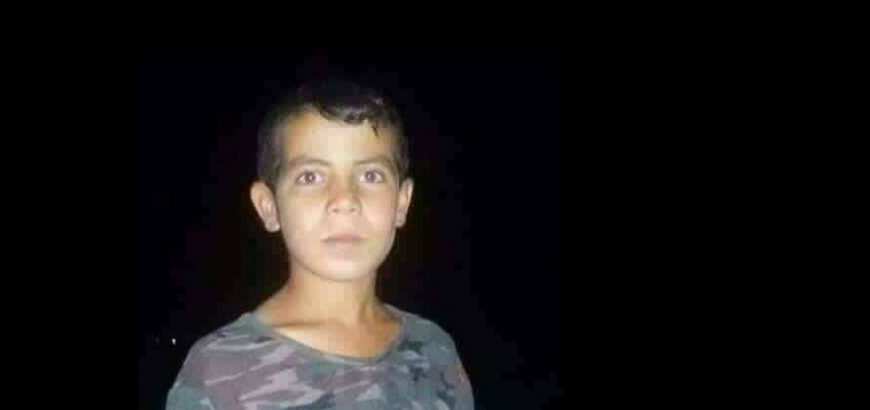Activists and social media pages in Deir-ez-Zor have circulated a story of humanitarian heroism carried by Ali Ahmad Rashed, a child who was able to save 30 families from the threat of certain death.
Escaping Islamic State (ISIS)-held territory and international coalition bombing in Deir-ez-Zor, Ali emerged with his family and 165 others, despite being led by a guide whom they paid to take them to an unknown land whose entrances and exits they did not know.
As happened many times before, the guide betrayed the families, fleeing from them halfway to the destination.
The families, which included dozens of women and children, found themselves in front of a mine field and surrounded by shelling. They were unable to return to where they came from because ISIS would take revenge on them, nor could they cross the mine field in front of them. But staying where they were would mean certain death.
According to the activists, Ali’s father said that he would advance, sacrificing himself to uncover a safe path inside the mine field, about 2 kilometers long. However, Ali told his father: "I will go instead of you, father, because if you die, we are all lost, but my death would protect you all."
The father submitted to his son's insistence, handing him a stick to trace a line on the ground and draw the safe route for the others to follow.
For hours, Ali went out among the mines, with the eyes and hearts of his family, and dozens of other families, watching every step he took.
When he reached the end of the mine field, the route he had drawn with the stick was ready for 164 people to safely cross one by one, including his mother and father and siblings. All of them survived.
Not only a tool to draw a path to salvation, Ali's stick may also take its place among the many icons of the Syrian revolution.
This article was translated and edited by The Syrian Observer. Responsibility for the information and views set out in this article lies entirely with the author.


